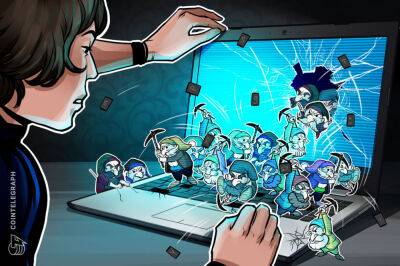Mental health support prime for decentralization, say academics
Decentralized mental health services could be the answer to the looming shortage of mental health professionals, according to professors from John Hopkins University based in Baltimore.
Speaking to Cointelegraph, Dr. Johannes Thrul from the John Hopkins School of Mental Health postulated that the mental health support sector could take a page from Decentralized Autonomous Organizations (DAOs) by offering support services in a decentralized system.
Dr. Thrul authored a July 22 academic paper looking into “Web3 and digital mental health," envisioning a decentralized peer support system that relies on “individuals with lived experience” to provide help “based on their expertise in managing their own conditions."
Dr Thrul said the system would work by using a “crypto token tied to the community” which would be rewarded to those that “make positive contributions to the community,” such as helping someone overcome a mental health issue in a peer support enviroment.
During a time when I find myself worried and anxious about the state of the world, it was fun to work on this genuinely positive and uplifting opinion article on the potential of web3 and online peer support for mental health. https://t.co/rEngiaOL3S
He said the system would not be bound to “border restrictions” noting how quickly governments adapted to remote delivery of health services during the COVID-19 pandemic, though he admitted it could not replace the mainstream medical system alone. Instead, it could be used to supplement seeing a traditional psychologist.
Another professor who contributed to the academic paper, Dr. Luke Kalb said a decentralized peer support system will provide more flexibility and freedom to how we approach mental health issues, stating:
The
Read more on cointelegraph.com























